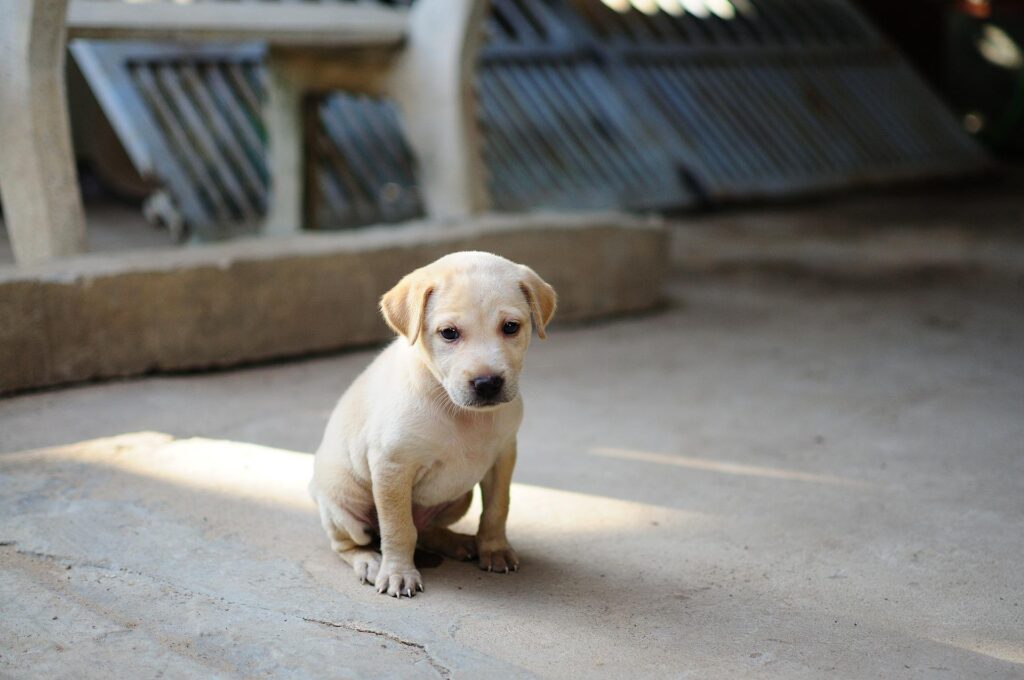Parvo is a dangerous and potentially fatal disease that affects puppies. It is caused by the Parvovirus, which spreads from one puppy to another by physical contact with infected pups. This virus can lead to death for the little ones, so reducing parvo in puppies is essential.
WHAT IS PARVO IN PUPPIES?
Parvo is a highly contagious viral infection in young dogs. You may have heard it referred to as Parvovirus or parvo. It’s caused by the canine Parvovirus (CPV), which affects most dogs’ gastrointestinal tract and nervous system, but not all.
The virus attacks rapidly dividing cells, including cells in the intestines and bone marrow. As a result, puppies with Parvovirus are often very sick with low red blood cell counts (anemia) and usually have bloody diarrhea and vomiting.
HOW DO PUPPIES GET PARVO?
Parvo is spread by direct contact with an infected dog or its feces. It can survive on surfaces for up to two weeks. The virus attacks the lining of the intestines, causing severe gastrointestinal problems. Parvo can kill an animal within two to three days if they do not receive treatment immediately.
Puppies can contract Parvovirus from other dogs or contaminated surfaces. The virus is very contagious and is spread via direct contact with an infected dog’s feces.
WHAT ARE THE SIGNS?
Symptoms of parvo in puppies can vary widely from dog to dog, but they usually include:
Diarrhea – Often bloody and very watery with a foul odor.
Loss of appetite – Your puppy may stop eating altogether, or he might eat only small amounts at a time. If left untreated, this can lead to dehydration, so you should contact your vet right away if your puppy refuses food for more than 24 hours.
Vomiting – This is often bloody, especially at first when the virus is infecting your puppy’s intestines. Vomiting can occur as often as every hour at first, but this tends to subside within 48 hours after initial exposure to the virus. After that point, vomiting may still occur occasionally, but it shouldn’t be as severe or frequent as the first few days after infection.
Lethargy – This symptom may appear as though the dog is depressed and listless.
HOW TO PREVENT PUPPIES FROM GETTING PARVO?
The best way to prevent Parvovirus is by vaccination. However, some other measures can help reduce the risk of your puppy contracting this virus:
Ensure that your puppy has been vaccinated against Parvovirus.
Do not allow other dogs to come into contact with your puppy.
Do not allow puppies to come into contact with areas where there are likely to be other dogs’ feces (for example, parks). In particular, do not allow them to eat anything that may have been contaminated by the feces of another dog or animal.
Keep vaccinations up-to-date for all dogs living in your household (including older pets) and frequently wash hands thoroughly after handling any pet or their waste products.
HOW TO HELP PUPPIES IF THEY GET PARVO?
If your puppy has parvo, it’s essential to keep him comfortable and prevent other dogs from coming in contact with him. The virus can spread easily through contact with infected feces or vomit.
If your puppy has been diagnosed with Parvoviral infection, your veterinarian will give you specific instructions for treatment. Most animals will require hospitalization inclusive of IV Fluids and antibiotics plus other medications to save their life!.
Once home, keep your puppy isolated and under close obervation for a few days; Provide access to plenty of fluids and give your puppy probiotics like Intesto-Guard.
PROBIOTIC BENEFITS?
If your puppy has Parvo, there are many things that you can do to help him recover and survive. One of the most important things you can do is provide probiotics for puppies with Parvo and who have recovered from Parvo.
Probiotics are good bacteria that help keep your dog’s digestive system healthy and stable. When a puppy gets Parvo, it can cause severe diarrhea and vomiting. This can lead to dehydration and electrolyte imbalances which can be fatal.
The first thing you should know about probiotic benefits for puppies with parvo is that they’re not a cure for the virus. They will help to keep him from getting sicker than he already is, which is vital if you want him to pull through this illness!
Not all probiotics are created equal. Intesto-Guard is a triple-action probiotic —it is not ONLY a probiotic. It also has very beneficial Prebiotics and Antibodies and designed with your pet’s optimal health in mind.
PARVO SHOULD BE TAKEN SERIOUSLY
Puppies are a huge responsibility, and they require your constant attention. When it’s time to feed them or take them out, they need you there to care for them. For this reason, it’s essential to do everything you can to make sure that they stay healthy and happy.
